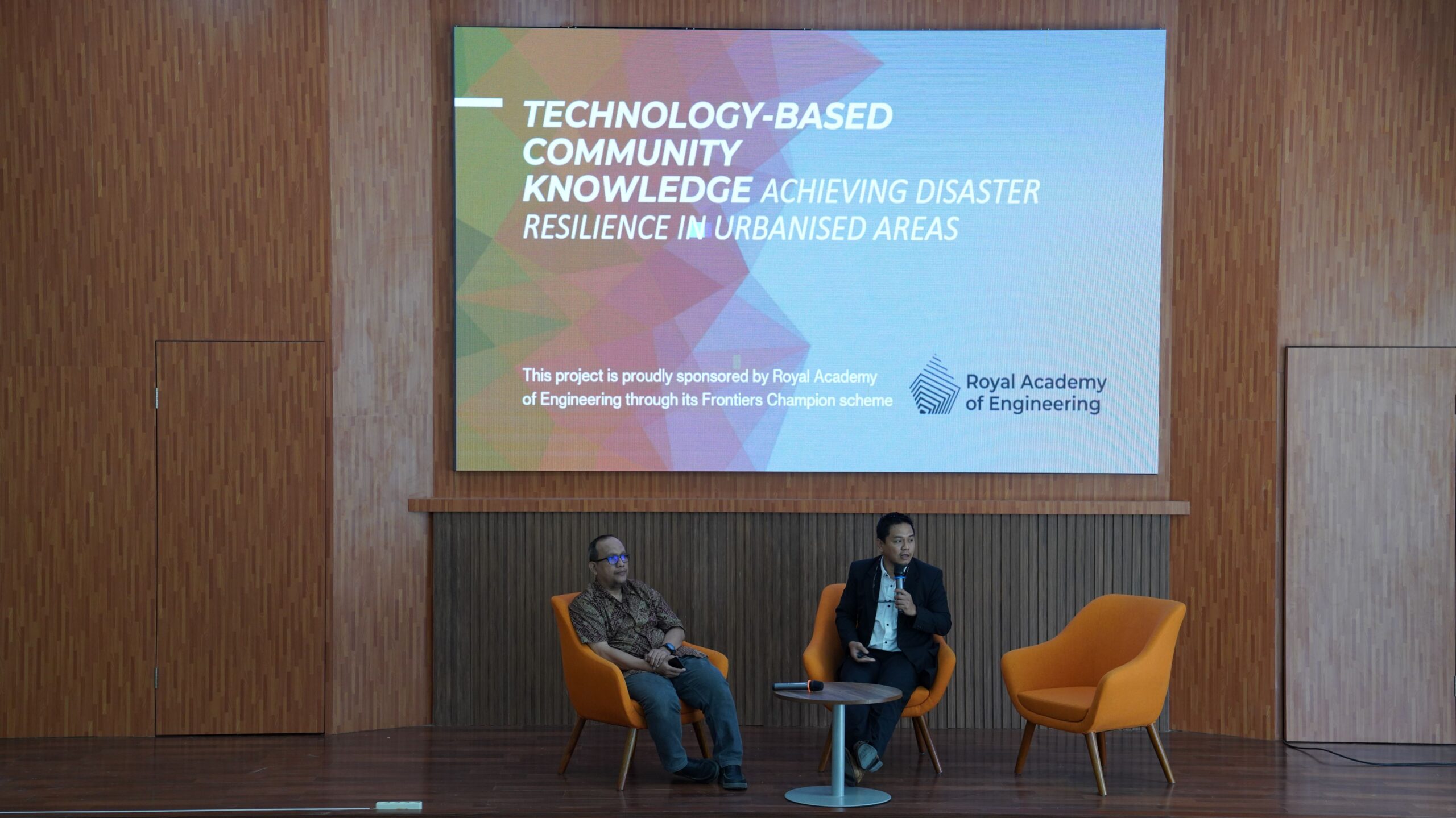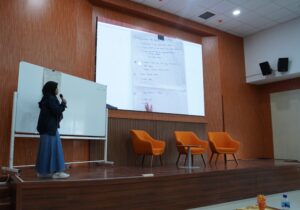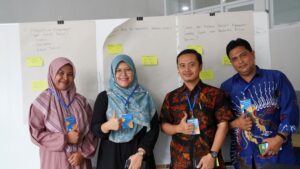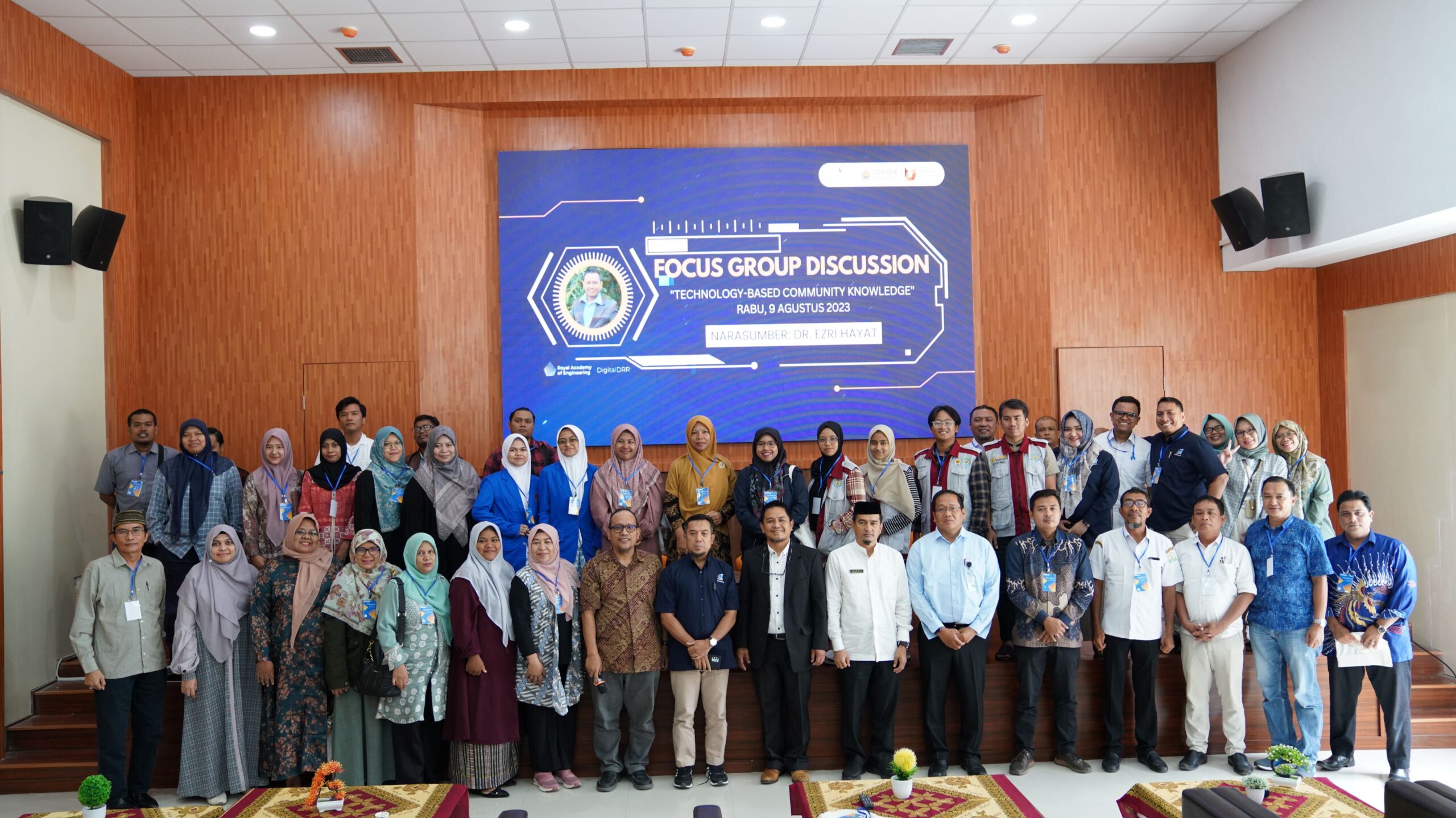
Banda Aceh – Universitas Syiah Kuala (USK) through the Tsunami and Disaster Mitigation Research Center (TDMRC) will hold a workshop as well as a Focus Group Discussion (FGD) related to community-based knowledge in the digital era, on Wednesday, August 9, 2023, at the USK TDMRC Auditorium, Banda Aceh. This workshop and FDG is one of a series of Technology-based Community Knowledge; Achieving Disaster Resilience in Urbanized Areas projects run in collaboration between TDMRC USK and the University of Huddersfield United Kingdom and Teesside University United Kingdom, supported by the Royal Academy of Engineering, United Kingdom (RAENG).
This workshop and FDG activity will invite dozens of participants from various circles. Thus, this activity can be used as a means of communication between government, academics, practitioners, students, media, communities, and business people about the importance of community-based knowledge in the digital era. Ezri said the main goal of the project is to create a safer and more resilient world in the face of disasters by harnessing the power of technology.
 This workshop and FDG, he added, is one of the ways to realize this goal. The five researchers from the three universities who will work together in this project are Dr. Ezri Hayat from the University of Huddersfield UK, who is the Project Lead and Founder of DigitalDRR, Dr. Alfi Rahman and Dr. Yunita Idris from TDMRC USK, Prof. Mohammad Abdur Razzaque from Teesside University UK, and Dr. Nuwan Dias from the University of Huddersfield, UK. Ezri explained that Southeast Asia is home to more than 667 million people. However, it is the most disaster-prone region in the world with more than 6,000 people and more than 11 billion US dollars lost in the last 5 years.
This workshop and FDG, he added, is one of the ways to realize this goal. The five researchers from the three universities who will work together in this project are Dr. Ezri Hayat from the University of Huddersfield UK, who is the Project Lead and Founder of DigitalDRR, Dr. Alfi Rahman and Dr. Yunita Idris from TDMRC USK, Prof. Mohammad Abdur Razzaque from Teesside University UK, and Dr. Nuwan Dias from the University of Huddersfield, UK. Ezri explained that Southeast Asia is home to more than 667 million people. However, it is the most disaster-prone region in the world with more than 6,000 people and more than 11 billion US dollars lost in the last 5 years.  Therefore, Ezri explained, Disaster Risk Reduction (DRR) is an integral part of the socio-economic development of a region and is considered a key element to achieve sustainable development and reduce loss of life in major disasters. “One important element in achieving resilience to disaster risk is community-based knowledge,” Ezri said. For example, she added, Simeulue Island showed how the oral history of the 1907 tsunami experience had been passed down from generation to generation, and ultimately saved many lives from the 2004 tsunami. Only 7 people died out of a total population of 78,000, while in the provincial capital, Banda Aceh, almost 25% of the total population of 260,000 people died. This is why the workshop and FDG were initiated. Besides aiming to raise awareness about the importance of community-based knowledge. especially in the digital era. “We hope that through this workshop and FGD, a network will be formed between all circles that will raise awareness and encourage effective collaboration between researchers and a wide audience in the discipline of digital technology and DRR. The discussion will also open up space to seek innovative ideas for wider adoption of digital technology in efforts to achieve disaster resilience,” Ezri concluded.
Therefore, Ezri explained, Disaster Risk Reduction (DRR) is an integral part of the socio-economic development of a region and is considered a key element to achieve sustainable development and reduce loss of life in major disasters. “One important element in achieving resilience to disaster risk is community-based knowledge,” Ezri said. For example, she added, Simeulue Island showed how the oral history of the 1907 tsunami experience had been passed down from generation to generation, and ultimately saved many lives from the 2004 tsunami. Only 7 people died out of a total population of 78,000, while in the provincial capital, Banda Aceh, almost 25% of the total population of 260,000 people died. This is why the workshop and FDG were initiated. Besides aiming to raise awareness about the importance of community-based knowledge. especially in the digital era. “We hope that through this workshop and FGD, a network will be formed between all circles that will raise awareness and encourage effective collaboration between researchers and a wide audience in the discipline of digital technology and DRR. The discussion will also open up space to seek innovative ideas for wider adoption of digital technology in efforts to achieve disaster resilience,” Ezri concluded.



